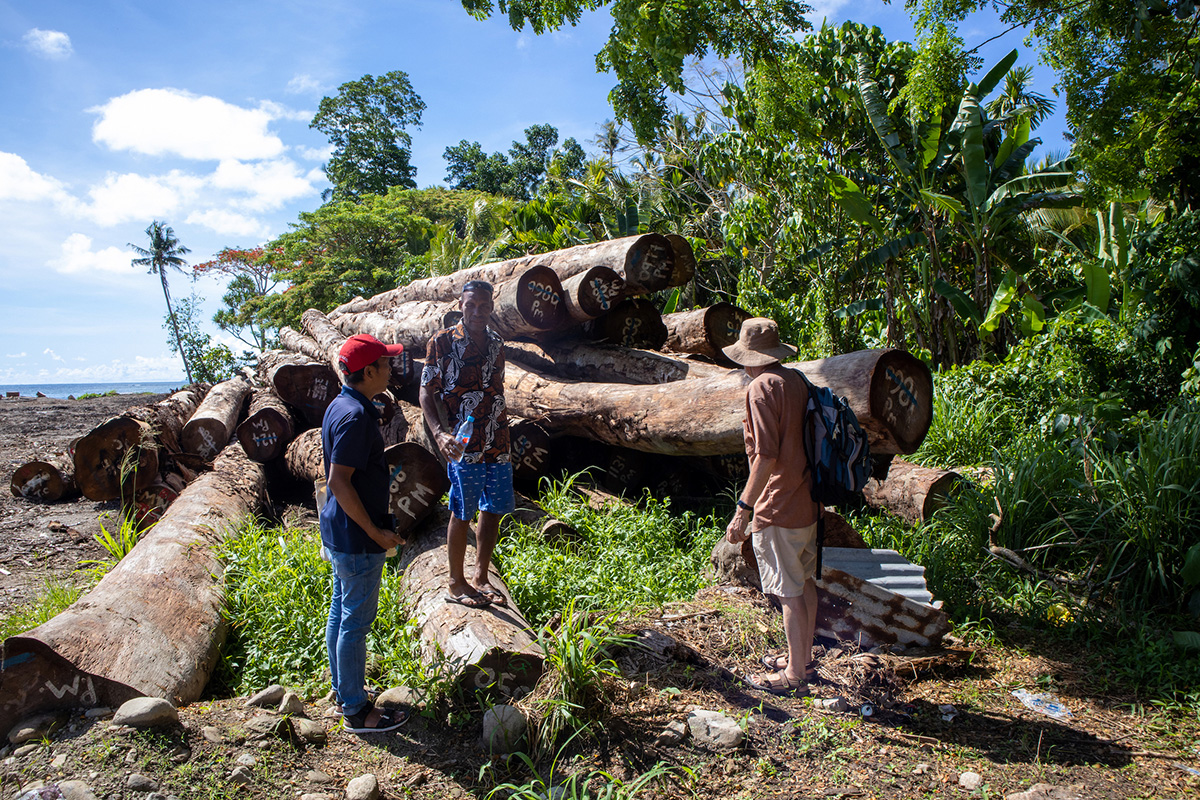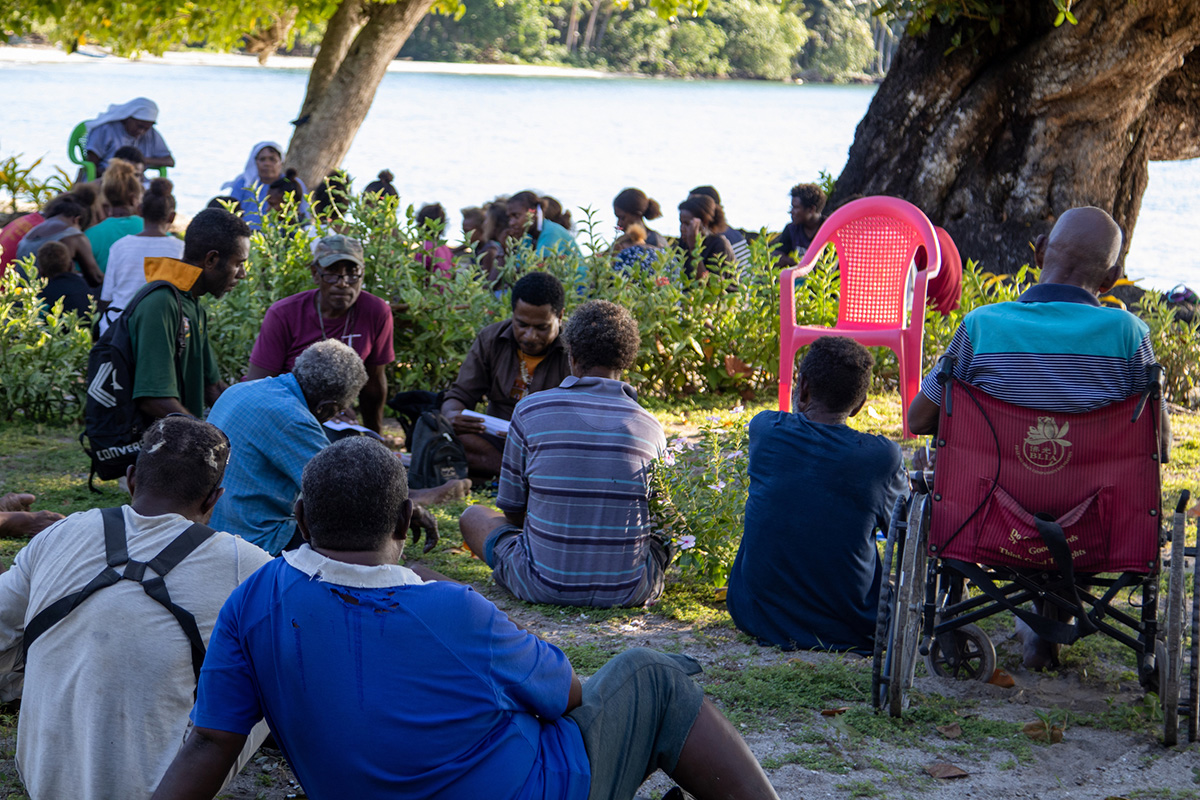International Day of Forests (21 March) – Anglican Action
“The [vines] that we use to tie up our leaf houses: there are none in the bush because the machines destroyed them,” said one village elder and brother of the Third Order of the Society of Saint Francis in the Solomon Islands. “The fish in the river, before you could dive and take them: now you can’t take anything from the rivers…So that’s the difference before and now – before we enjoyed everything in the bush. Now, no.”
Today, International Day of Forests, is a good moment to pause and reflect on the role that forests play and what Anglicans are doing to protect forests.
Forests purify the air we breathe and filter the water we drink. They prevent erosion and reduce the risk of landslides. They absorb radiant heat from the sun, protecting the soil from drying. Their tree roots hold soil compactly so it’s less vulnerable to erosion by rain or wind. Forests on hillsides help prevent landslides and mangrove coastal forests help buffer against coastal erosion and tsunamis. Forests are home to much of the world’s remaining wildlife. Forests provide spiritual comfort to some people and sustenance to others. If managed responsibly, they can serve as a sustainable source of timber, food, and medicinal plants.
Forests also absorb carbon dioxide (and store it as carbon). Therefore, forests help reduce the amount of carbon dioxide that we’re releasing into the atmosphere – an important function in humankind’s battle to keep global warming to only 1.5 degrees above pre-industrial levels. Currently, around 20% of global carbon dioxide emissions into our atmosphere are due to forest clearing.[1]
Despite the important roles that forests play, Australians have lost about 40% of our forests in the past 200 years. The world has lost one third of its forests since the end of the last ice age…but half of this forest loss has occurred just since 1900.[2] Humans have become smarter at finding ways to clear forests but not necessarily smarter at finding ways to protect them.
Anglicans are guided by our 5th mark of mission: Protect, care for, and renew life on our planet.
At the Lambeth Conference in 2022, the Anglican Communion launched an initiative called “Communion Forest”. This comprises local activities of tree growing, forest protection, and ecosystem conservation and restoration undertaken by parishes, dioceses and provinces across the Anglican Communion. You can go to their website here, https://www.communionforest.org/, to see what is happening around the Communion, including a Lenten Calendar of forest-related activities produced by Green Anglicans Southern Africa.
Other forest protection initiatives have started in Australia’s own neighbourhood. In the Solomon Islands, local Franciscan Brothers, as well as the Sisters of the Church, are taking a stand against rampant industrial logging which has caused widespread environmental destruction in the Solomon Islands. The two Anglican orders have embarked on a series of new mission projects to strengthen the awareness and resilience of local communities. They are also working with the local Roman Catholic Dominican sisters and brothers to take the issue of logging to the international community and will raise it at the United Nations.
Anglicans have supported ABM AID’s local partners to do tree-planting and tree conservation in Kenya, the Philippines, and the Solomon Islands.
In Kenya, an evaluation of AID’s partner, ADSE’s 2017 –2022 livelihoods project found that over 20,000 trees had been planted in that period. The evaluation found that the number of respondents using energy saving stoves (jikos) was 73%, up from 20% as recorded in a 2017 baseline survey. The increase in use of such stoves suggests the amounts of firewood used at household and institutional (schools) levels has decreased.
In the Philippines in 2022, VIMROD provided ten community organisations with funds to establish their own plant nursery project. The groups, which had previously gained advocacy and coordination skills through VIMROD’s program, worked with local governments on mangrove planting, tree planting and clean up drives. VIMROD also supported Indigenous communities to plant and protect trees. AID’s other Philippines partner, E-CARE, helped build community-based organisations whose roles include environmental advocacy. One group set up a centralized nursery while another planted mangroves.
In the Solomon Islands in 2023, AID’s partner ACOM (Anglican Church of Melanesia) is implementing a disaster risk reduction program. The program includes activities that help protect trees: awareness-raising about coastal erosion and the establishment of two new climate observatories. The observatories will facilitate local community members (and high school students) to record data on climate change and its impacts, providing communities with insights that will help them adapt to climate change and providing environmental advocates with valuable data.
International Day of Forests allows us to acknowledge forest conservation efforts around the world. Let us work together to ensure there will always be vines for bush houses and fish in rivers. And to ensure forests continue to shelter wildlife, buffer against erosion, and filter our air and water.

The Solomon Islands Franciscan brothers visit a local logging pond. © Society of St Francis. Used with permission.
